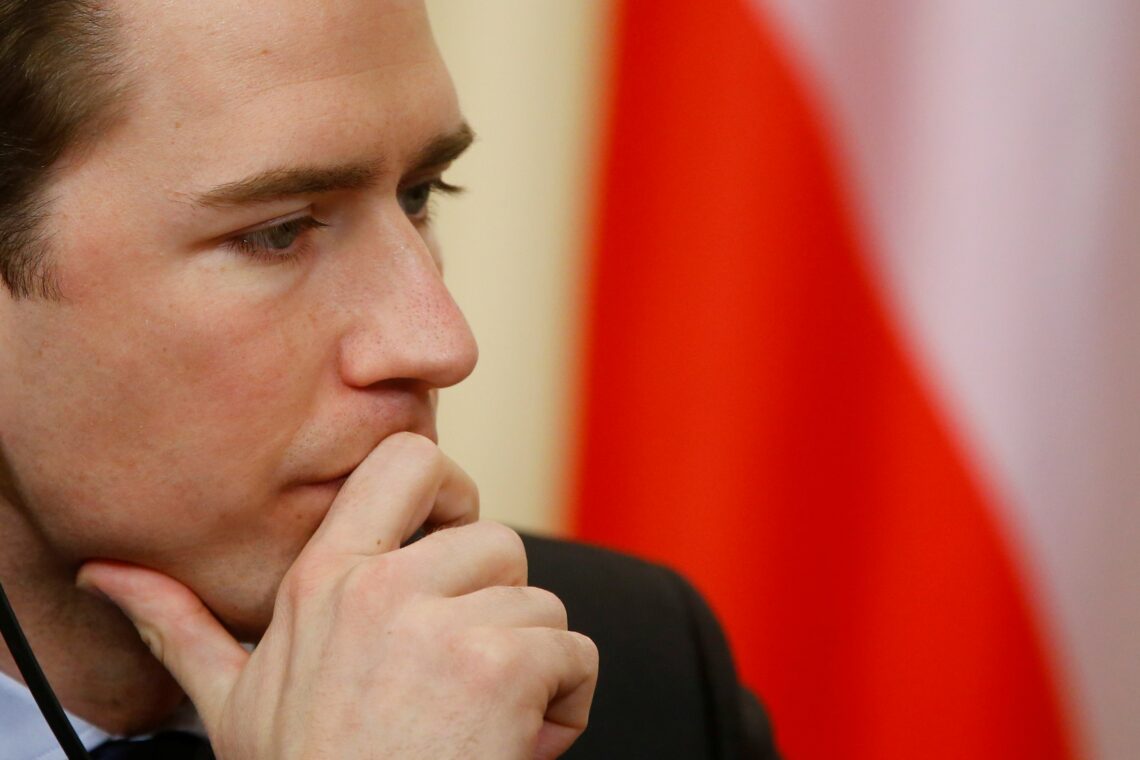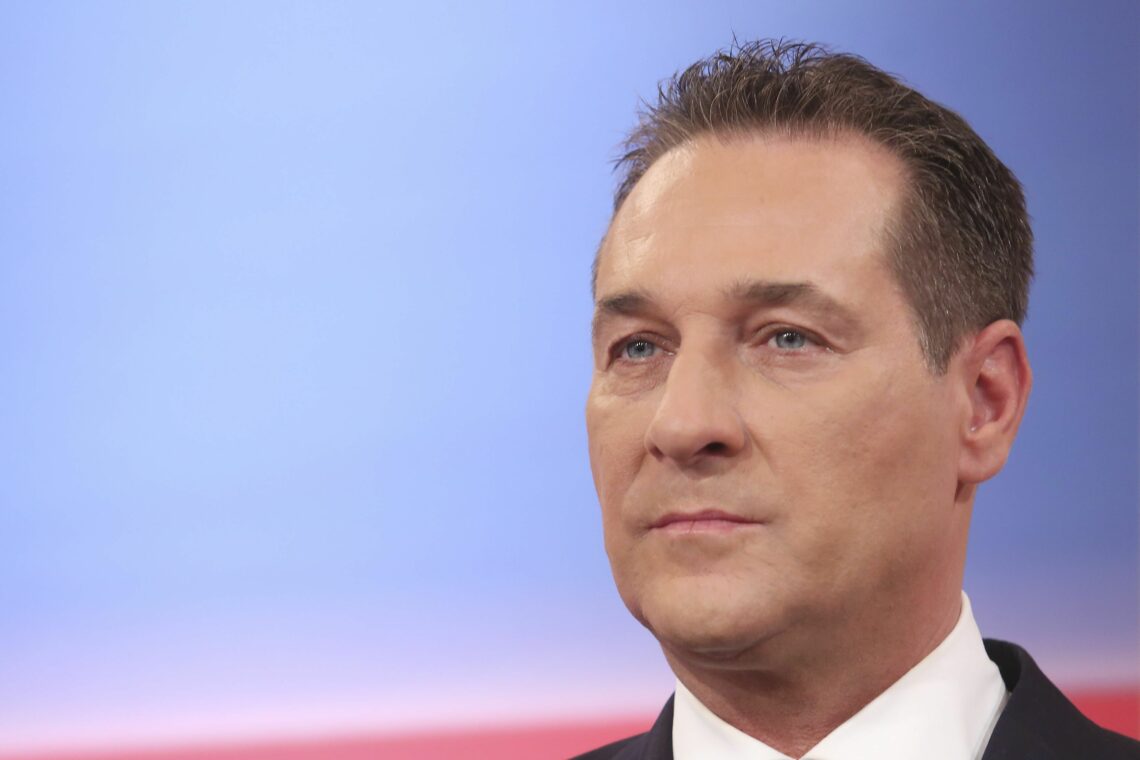Kurz and the crisis
In Austria, Chancellor Sebastian Kurz has surmounted several serious political challenges so far. However, the pandemic may have provided him temporary respite by obscuring issues that will resurface once the political debate shifts from the health crisis to thornier matters.

In a nutshell
- Chancellor Kurz’s approval ratings in Austria are dropping
- His coalition with the Greens rests on an uneasy truce
- Past mistakes could come back to haunt him
On May 12, it was revealed that Austrian prosecutors are investigating Federal Chancellor Sebastian Kurz on suspicion of false testimony. A 58-page document leaked to the media states that Mr. Kurz is accused of having lied to a parliamentary inquiry committee on June 24, 2020. The hearing concerned the appointment of one of his close associates as head of the influential Osterreichische Beteiligungs AG (OBAG), which oversees the investments of Austrian state companies. The chancellor maintains that he did not influence the decision.
The inquiry is the climax of a campaign against the ruling Austrian People’s Party (OVP) that has been waged for months by the media, opposition parties and left-wing prosecutors. Besides Mr. Kurz, his head of cabinet, the finance minister, three former ministers and three other OVP members are under investigation. While the opposition is cheering and demanding the immediate resignation of the federal chancellor and the minister of finance, conservative observers fear that Austria’s reputation as a constitutional state will be permanently damaged by the politicization of its judiciary.
Wunderkind
At an age when other politicians are trying to make a name for themselves, Austrian Chancellor Sebastian Kurz, born in Vienna in 1986, can look back on a meteoric career. Some say he is past his prime.
His ascent began in the youth organization of the OVP. At 25, Mr. Kurz became state secretary for integration, and at 27 he was named foreign minister. In May 2017, he took over the chairmanship of the OVP. He undertook broad reforms and gave the party a fashionable new color – turquoise instead of black. He was sworn in as federal chancellor for the first time in December 2017 and for a second time in January 2020. He will turn 35 years old on August 27 this year.
The young chancellor is no longer riding a wave of public enthusiasm; he has to swim against the tide.
But the political wunderkind appears to have run out of luck. In a survey published on May 2, the OVP was still Austria’s leading political party with 33 percent support, but it landed well below the election result of 2019 (37.5 percent) and below the peak (46 percent) it reached during the pandemic. A year ago, Chancellor Kurz’s approval ratings were at 62 percent, but by April 2021 they had fallen to 45 percent.
Mr. Kurz still ranks well ahead of its competitors. This drop in popularity is a warning. The young chancellor is no longer riding a wave of public enthusiasm; he has to swim against the tide. In the second year of the pandemic, the curve of the approval ratings for his government flattened faster than that of Covid-19 cases. Austria has some of Europe’s strictest measures to contain the spread of the disease. Multiple lockdowns wreaked havoc on the economy and society. While most Austrians accepted these restrictions as appropriate and necessary in 2020, that changed in the first and second quarters of 2021. Doubts about the effectiveness of lockdowns grew louder, and more and more Austrians worry about their future.
Coalition with the FPO
In 2017, Mr. Kurz promised to free the OVP from the suffocating clutches of the Social Democrats (SPO). For over a decade, the OVP had always been the SPO’s junior partner. It seemed as if the party had given up hope of ever ruling again. Things changed when Mr. Kurz and his friends from the youth branch of the OVP entered the scene. As foreign minister under SPO Chancellor Werner Faymann from 2013 to 2017, the young politician made a name for himself as an advocate of restricting immigration and an opponent of Turkey’s accession to the EU. He became known beyond Austria’s borders when he spoke out against letting in migrants as Germany had done during the 2015 refugee crisis. German conservatives, who considered Chancellor Merkel’s migration policy a serious mistake, admired the OVP’s new chairman. In Austria, Mr. Kurz was popular with the disappointed voters of his party, but also with nonvoters and even sympathizers of the right-wing Freedom Party (FPO). He encountered resistance from the SPO and from OVP politicians who had committed themselves to the grand coalition for better or for worse.
The chance to turn things around came with the National Council election in October 2017. The “Kurz list” received 31.5 percent of the vote (+7.5) and the FPO garnered 26 percent (+5.5). At around 27 percent, the SPO’s support had only risen slightly, and the Greens were voted out of parliament. Two months after the election, Sebastian Kurz and then-FPO Chairman Heinz-Christian Strache announced they had agreed to form a government.
There was a first coalition between the two parties in 2000-2005 under the OVP Federal Chancellor Wolfgang Schussel, but it had failed due to a split in the FPO. Heinz-Christian Strache seemed to have learned from the 2005 debacle caused by former FPO Chairman Jorg Haider. The new coalition avoided public controversy. It seemed to have good prospects of withstanding the attacks of the left-wing parties and the media, especially the public broadcaster ORF, until 2022.
Ibiza affair
But then, on May 17, 2019, a short video of Mr. Strache and another FPO politician surfaced. They had been filmed without their knowledge at a villa in Ibiza with the alleged niece of a Russian oligarch while discussing public contracts, donations to the FPO and plans to control the media. The next day, the two politicians resigned from office and left the party.
To this day, the affair has not yet been fully clarified, and had it been handled differently, the coalition could have survived. The FPO immediately distanced itself from Mr. Strache, and was still willing to work with the OVP. But suddenly the chancellor demanded the resignation of FPO Interior Minister Herbert Kickl. It is unclear whether he acted out of fear that Mr. Kickl would hinder investigations into the Ibiza affair, or whether he deliberately brought the coalition to its breaking point so that the Interior Ministry would be back under OVP control. In any case, the FPO refused to accede to his request on the grounds that Minister Kickl was not involved in the affair.

Alliance with the Greens
Ending the coalition appears to have been a fatal mistake for Mr. Kurz, even though it was not obvious at first. In the National Council election in September 2019, the FPO lost almost 10 percent of its votes and the SPO recorded its worst result ever with 21 percent. The OVP, on the other hand, gained six percent and the Greens returned to parliament with almost 14 percent. The OVP then formed a coalition with the Greens. Mr. Kurz trusted that, given the balance of power between the two parties, he would determine the course of the government. The alliance with the Greens made the media less critical.
For a year, fighting the pandemic overshadowed all other issues. While the Green Minister of Health Rudolf Anschober always advocated the strictest measures in case of doubt, Mr. Kurz showed more concern for the state of the economy. But on the whole, the turquoise-green coalition was united in its handling of the health crisis.
The inquiry tarnished Austria’s reputation as a constitutional state.
The new alliance meant that the Greens now occupied top positions in the public service as well as state companies and institutions. It turned out to be particularly problematic for the OVP to have left the Ministry of Justice to the Greens because the most dangerous attack to date on Mr. Kurz and his circle came from the judicial system in spring 2021. Prosecutors acted with opposition parties to move forward with the Ibiza parliamentary committee of inquiry.
The inquiry was originally set up to uncover the details surrounding the video that had led to the collapse of the turquoise-blue coalition. But instead, the committee and the Corruption Prosecutor’s Office began investigating accusations of illegal activities concerning Mr. Kurz and other politicians of the OVP. The focus of the probe shifted away from the FPO, which is now cooperating with representatives of the left-wing parties in the committee of inquiry. House searches were ordered and smartphones were confiscated and decrypted. Even intimate phone calls were transcribed and made public.
So far, the investigations have not yielded any findings relevant to criminal law. However, some practices of the turquoise loyalists came under the spotlight. Thomas Schmid, who belongs to the chancellor’s inner circle, was made head of Osterreichische Beteiligungs AG, which is responsible for managing the shares of the Republic of Austria in listed companies, even if he had no prior experience. Finance Minister Gernot Blumel was also in the crosshairs of the investigators. He had to be asked by the president to comply with a decision of the Constitutional Court that required him to hand over files from his ministry to the investigative committee. It was the first time that an Austrian federal president intervened in such a matter.
An early end to the coalition with the Greens would be incredibly dangerous for Sebastian Kurz.
The inquiry tarnished Austria’s reputation as a constitutional state. Not only did a minister disregard an order of the Constitutional Court, but also politicians, civil servants, entrepreneurs and other citizens were forced to testify under oath on matters unrelated to the subject of the committee’s investigation. Many had to provide personal documents, and the general style of the inquiry was more in line with the practices of a totalitarian country.
Scenarios
Will Chancellor Kurz’s turquoise-green coalition survive? For the time being, yes – at least until the worst of the pandemic is over because neither party will want to risk a political crisis until then. However, tones will sharpen. The Greens are also under pressure. The opposition accuses them of making lazy compromises to allow the government to move forward. Such criticism is particularly problematic for a party whose left-wing base believes it has the moral high ground.
The Greens were ready to accept the relatively restrictive migration policy of the OVP. Even the affair about the finance minister did not lead them to challenge their coalition partner. But this could change if the chancellor faces charges. Clashes will also emerge as the pandemic eases. The Greens could return to their favorite topic, namely the restructuring of the economy in the name of environmental protection. Their core belief is that only a strong interventionist state can take the measures necessary to avert the allegedly imminent climate catastrophe.
An early end to the coalition with the Greens would be incredibly dangerous for Sebastian Kurz. It would be almost impossible for him to convince the FPO to join forces for a second time. The party now mistrusts the chancellor so much that it considers a coalition with the SPO. One FPO representative in the investigation committee, who is calling for the chancellor to resign, has already proposed the formation of a four-party coalition. Mr. Kurz wasted the chance he was offered in 2017. It will be years before Austria sees another government that reflects the conservative majority of the population.






